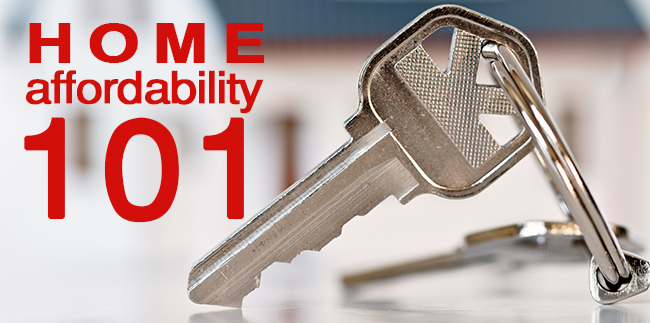Evaluate your personal financial health, before applying for a mortgage loan. Actually, your disposable monthly income versus your total monthly financial liabilities will very much decide the amount of mortgage a lender may be willing to offer you.
So, you need to know the math about home affordability, before you buy a house.
Tips to find out how much mortgage can you afford
Read on to learn the basics of calculating your home affordability: The monthly housing rent – The tax advantages attached to homeownership will allow you to make the monthly mortgage payments with ease and that includes both insurance as well as taxes. These costs may add up to in excess of one-third of your monthly housing rents, without altering your lifestyle. So, you may multiply your present monthly housing rent by 1.33 to derive a rough estimate about your probable mortgage payment.
Moreover, you’ll also have to consider as to whether or not you are willing to itemize your deductions. You won’t be able to deduct the mortgage interest payments, if you’ve opted for the standard deduction. In this case, you may either consult a tax expert or use a tax filing software to understand your situation more clearly.
The monthly mortgage payment – A lot of lenders wouldn’t advise you to take out a mortgage that will overwhelm you while trying to pay off your financial liabilities down the line. Normally, your monthly housing costs shouldn’t be more than 28 percent of your gross monthly income. This includes expenses such as taxes, insurance and the likes.
In case, you are unaware of your what tax and insurance cost will be, then you can have a rough estimate of 15 percent in your mind. The remaining part will be used for principal and interest payment. Additionally, your projected monthly housing costs and your overall monthly debt service combined shouldn’t be more than 36 percent of gross monthly income.
The monthly debt payments – After that, you’ll have to calculate the amount of debt payments you make out of whatever you earn in a month. This payments would include each and every monthly obligations of yours, say for example, credit cards, car loans, installment loans, personal loans or various other monthly non-discretionary costs like child support or alimony.
In case of revolving debts like credit cards, you may use the the minimal monthly payment calculation method, while for installment loans, take your existing monthly payment into consideration.
The monthly disposable income – Apart from the above factors, you’ll also have to determine the amount of your gross monthly income. Both regular as well as recurring income that you can document must be added here in this regard. If there is no document to prove your income, or your tax papers doesn’t have any mention about them, then you can’t list them so as to qualify for a mortgage.
Nevertheless, you can list unearned sources of income like lottery or alimony payoffs. More, income from other assets like real estate, stocks, bonds, etc can also be used to calculate your monthly gross income.
If you still have any doubt like how much mortgage can I afford, or how to apply for a mortgage, then you can work with a loan officer and take his/her help for that matter.
Contributor, designer & admin for JohnHart Gazette.


